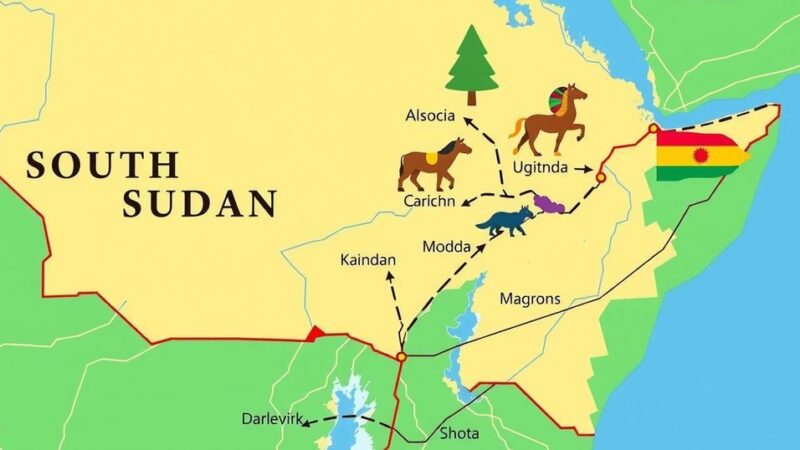The Tigray region in Ethiopia is facing renewed conflict due to internal strife within the Tigray People’s Liberation Front and escalating tensions with Eritrea. Recent developments indicate a political coup, heightened military presence, and fears among residents about impending warfare. Diplomatic efforts from Ethiopian Prime Minister Abiy Ahmed may be crucial to prevent further escalation and conflict.
The Tigray region of Ethiopia, which endured a devastating conflict that concluded in 2022, is on the verge of renewed turmoil. Aregawi, an individual who previously fought in the conflict, expressed concerns about imminent warfare, stating, “We do not want to become a battleground, but it seems like war is near, maybe even inevitable.” Following the war, a staggering death toll and widespread issues, including rampant sexual violence, persisted without adequate implementation of the ceasefire’s terms.
Tensions have escalated dramatically as Tigray’s interim president, Getachew Reda, attempted to dismiss three senior military officials. Reports suggest a coup occurred when a rival faction, led by Debretsion Gebremichael, assumed control of key provincial offices in Tigray. Amidst this political turmoil, Getachew fled to Ethiopia’s capital, Addis Ababa, heightening the region’s instability.
Recent violence marked by fatal skirmishes exacerbated existing fears among Tigray’s residents, many of whom are withdrawing cash and fleeing the region. A concerned local remarked, “Fear and uncertainty prevail,” reflecting broader anxieties over potential conflict and mass displacement.
Simultaneously, tensions between Ethiopia and Eritrea have intensified, despite the two nations previously cooperating in Tigray. Ethiopian Prime Minister Abiy Ahmed has pursued regaining access to the Red Sea, an objective that Eritrea opposes, resulting in rising militarization along their border. Reports indicate that Eritrean intelligence may have supported the coup in Tigray, aligning with increased mobilization efforts within Eritrea.
Ethiopia has amped up military presence near the Eritrea border, while state media rally support for claims concerning the strategic port of Assab. General Tsadkan Gebretensae voiced alarms that Tigray could once again see warfare, calling the situation a volatile powder keg.
Diplomats Payton Knopf and Alexander Rondos characterized these tensions as a scenario ripe for conflict, emphasizing the precarious nature of the relationship between the nations. In response, Abiy affirmed Ethiopia’s commitment to a peaceful dialogue regarding the port issue, despite the unraveling conflict in Tigray, with the potential for any resolution also involving the formidable Tigray military force.
As the newly established leadership in Tigray seeks to regain control of the valuable western Tigray region, the potential for further conflict looms, particularly if diplomatic efforts fail. Geopolitical analyst Ahmed Soliman articulated that the evolving dynamics in Tigray and Abiy’s responses will be crucial in determining the future stability of the region and averting escalated conflict.
In conclusion, the Tigray region stands at a critical juncture amidst political upheaval and fears of renewed conflict. The failed implementation of ceasefire agreements, military tensions between Ethiopia and Eritrea, and the internal strife within Tigray’s ruling party all contribute to a precarious situation. The response from Ethiopian leadership will be pivotal in managing these escalating tensions and preventing further violence, while diplomacy may be the only path to stability in the region.
Original Source: www.theguardian.com






